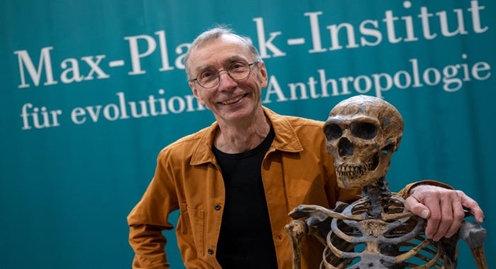Nobel Prize in Medicine for Research on Early Humans
Context
Swedish scientist Svante Pääbo won the Nobel Prize in medicine for his discoveries on human evolution.
- The award was given for his discoveries concerning the genomes of extinct hominins and human evolution.

About his research
- Svante Pääbo sequenced the genome of the Neanderthal, an extinct relative of present-day humans.
- He also made the sensational discovery of a previously unknown hominin, Denisova.
- Importantly, he also found that gene transfer had occurred from these now extinct hominins to Homo sapiens following the migration out of Africa around 70,000 years ago.
- This ancient flow of genes to present-day humans has physiological relevance today, for example affecting how our immune system reacts to infections.
- In 1990, Pääbo was recruited to the University of Munich, where, as a newly appointed Professor, he continued his work on archaic DNA.
- He decided to analyze DNA from Neanderthal mitochondria – organelles in cells that contain their own DNA.
- The mitochondrial genome is small and contains only a fraction of the genetic information in the cell, but it is present in thousands of copies, increasing the chance of success.
About Nobel Prize
- On 27 November 1895, Alfred Nobel signed his last will and testament, giving the largest share of his fortune to a series of prizes in physics, chemistry, physiology or medicine, literature and peace – the Nobel Prizes.
- In 1968, Sveriges Riksbank (Sweden’s central bank) established The Sveriges Riksbank Prize in Economic Sciences in Memory of Alfred Nobel.
- It was first awarded in 1901.
- It is an international award administered by the Nobel Foundation in Stockholm, Sweden, and based on the fortune of Alfred Nobel, a Swedish inventor and entrepreneur.
- The prestigious award comes with a gold medal and 10 million Swedish kronor (over $1.14 million).

